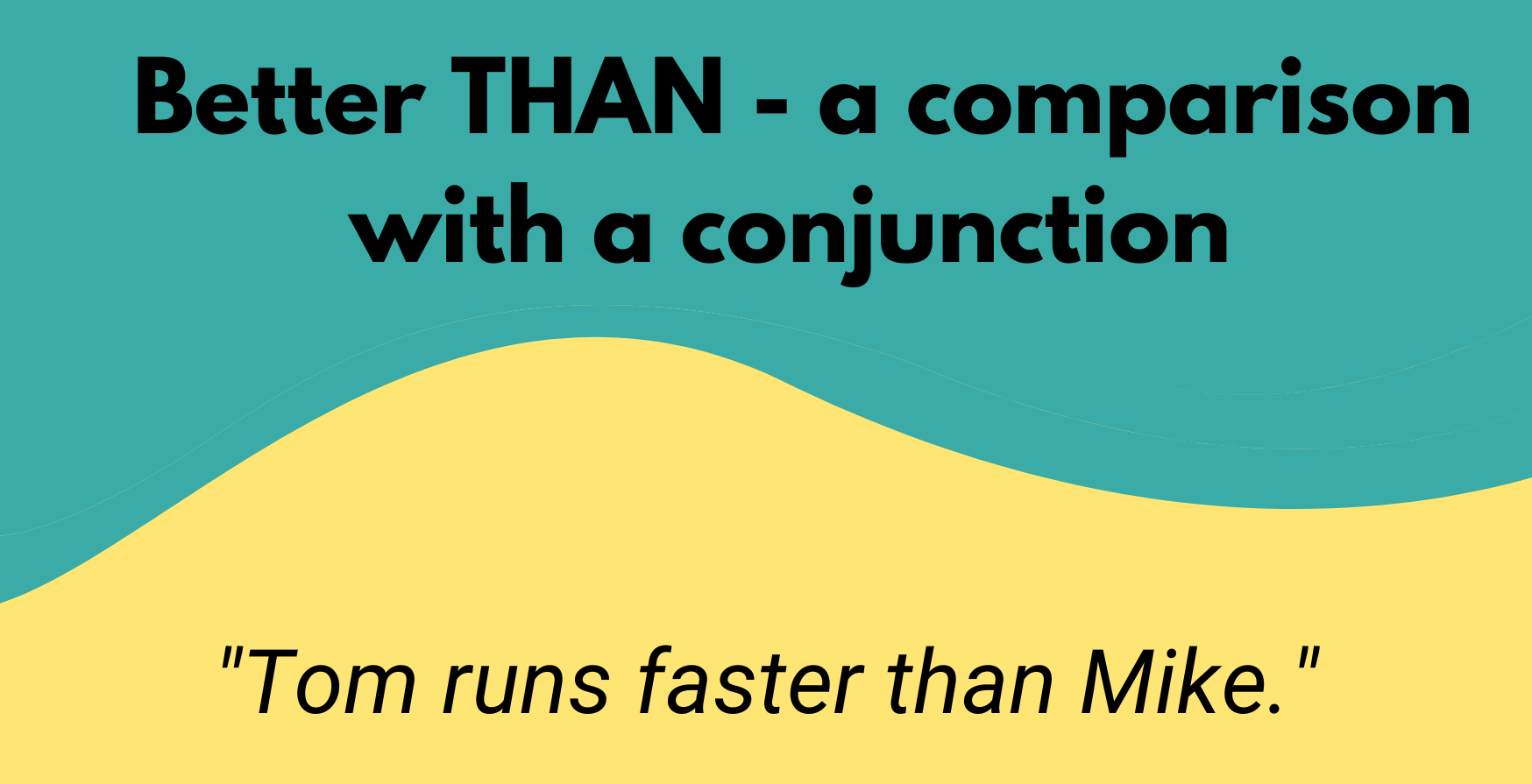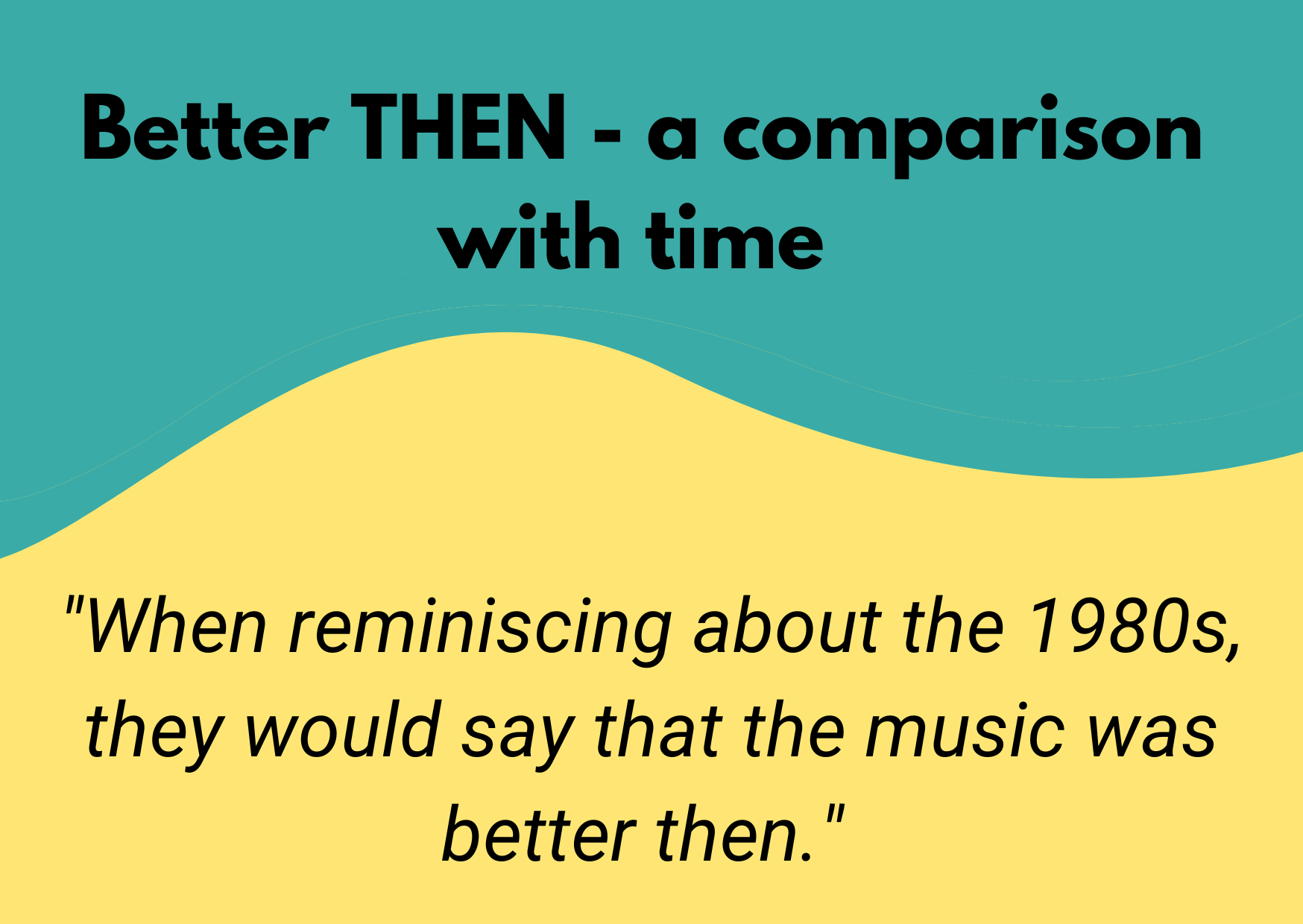You have probably heard “better than” or “better then” many times before – but have you always known whether someone is using “then” or “than”? They sound very similar and only differ in spelling by one letter, so it’s easy to see how they can be mixed up.
If you have ever felt confused about whether to use “better than” or “better then,” this post is for you! In the sections below, we’ll show you the key differences between these two phrases to help you determine which one to use.
Better Then Vs. Better Than
Both “better than” and “better then” are both grammatically correct phrases – but just like many turns of phrase within the English language, it all depends on the context when you use it. Although they sound and look similar, these phrases have completely unique meanings and aren’t interchangeable.
If you are using “better than,” you are creating a comparison with a conjunction. If I say that linguine is better than spaghetti, I’m saying that one type of pasta is better than the other (in this case, linguine wins). Conversely, if I said I was feeling nostalgic for a meal I had in Italy because the linguine was better then, I’m making a comparison with time – the linguine was better at another point in time. “Better then” is an adverbial phrase, while “better than” is a conjunction.
Because both phrases have different uses and different meanings, you can’t swap one out for the other. Only one phrase will be the correct choice depending on whether you are making a comparison between one thing and another, or making a comparison between periods of time.
How to Use Better Than
“Better than” is used in a sentence where one, better thing is being compared to another, lesser thing. This can also work for people, animals, songs, movies, and even intangible things, such as values and ideas. Remember: any time you use “better than,” you are saying that one thing is better (more valuable, more successful, etc.) than the other. Here are some examples of how to use “better than” in a sentence.

- Sunday’s game was so exciting; we played much better than we did last week.
- I know it’s an unpopular opinion, but I really like mustard better than ketchup.
- Sally is much better than Andy when it comes to writing poetry.
- I am looking forward to taking saxophone lessons; I can’t wait to be better than I was last year!
- You should book your next appointment with Michael, since he’s much better at nail art than your last technician.
- Cats and dogs are great pets, but I like dogs much better than cats.
How to Use Better Then
“Better then” is used to express a relationship between events that depends solely on time. This adverbial phrase only works when you are referring to an event that either was or will be better than another event that occurs at a different time. It’s important to stress that even though place, value, or importance might play a role in the sentence, using “better then” means that the key relationship between two events is based solely on time.

Here are a few examples of how you might use “better then” in a sentence.
- I miss the days before we all had constant access to everything on our phones. Life seemed so much better then.
- Sometimes I think that my attention to detail was better then, but then I remember how much I struggled to pay attention during high school.
- Do you remember a few years ago, when we were able to travel every weekend if we wanted to? Our salaries were much better then.
- Our football team has made some terrible trades lately. I wish we could just erase the past few seasons and go back to 2019; our roster was much better then.
- Traffic was much better then; now, there is so much construction and new buildings that it’s getting impossible to avoid getting stuck in traffic.
- Wasn’t there another spice that we used in the last recipe? I remember it tasting much better then.
Examples From Literature
Let’s take a look at how both phrases are used in literature from various media sources:
One message of the mural, Ms. Testone said, is: “We’re fine. We’re better than fine. We’re great.” – The New York Times
There’s a famous opera singer, mysteries a-plenty, a villain called the Masked Man andit’s all told in flashback. Better than ‘Inception’? We’ll have to see. – The Independent
“So let’s sit,” I said. “You’ll feel better then.” I hoped that telling her she would feel better would help to make her feel better. – The Guardian Books
A change for the better then. But there is one thing, in this city of fragments and incongruous survivals, that gives no impression of change or dismemberment, and that is the superb mosaics that decorate some of the churches with scenes from the Christian story and portraits of saints and apostles and martyrs. – The New York Times Magazine
Quiz
Test yourself with this little quiz:
The game was set for Saturday. Stacey was nervous. She knew her opponent was slightly better ___ her. A bit faster, a bit stronger. Sure, Stacey had three champion titles behind her, but she was younger and technically much better ___. However, there was something to be said for experience. She thought to herself: “is youth better ___ experience?” She sighed, closed her eyes and thought about her earlier days in the sport. She was better ___ most ___. Everything was better ___.
Answers:
The game was set for Saturday. Stacey was nervous. She knew her opponent was slightly better than her. A bit faster, a bit stronger. Sure, Stacey had three champion titles behind her, but she was younger and technically much better then. However, there was something to be said for experience. She thought to herself: “is youth better than experience?” She sighed, closed her eyes and thought about her earlier days in the sport. She was better than most then. Everything was better then.
Conclusion
As long as you are not swapping one out synonymously for the other, both are grammatically correct. Don’t forget that “then” talks about the relationship between two points in time, whereas “than” talks about the relationship between two people, things, or ideas.
Related: Never Confuse Then and Than Again






